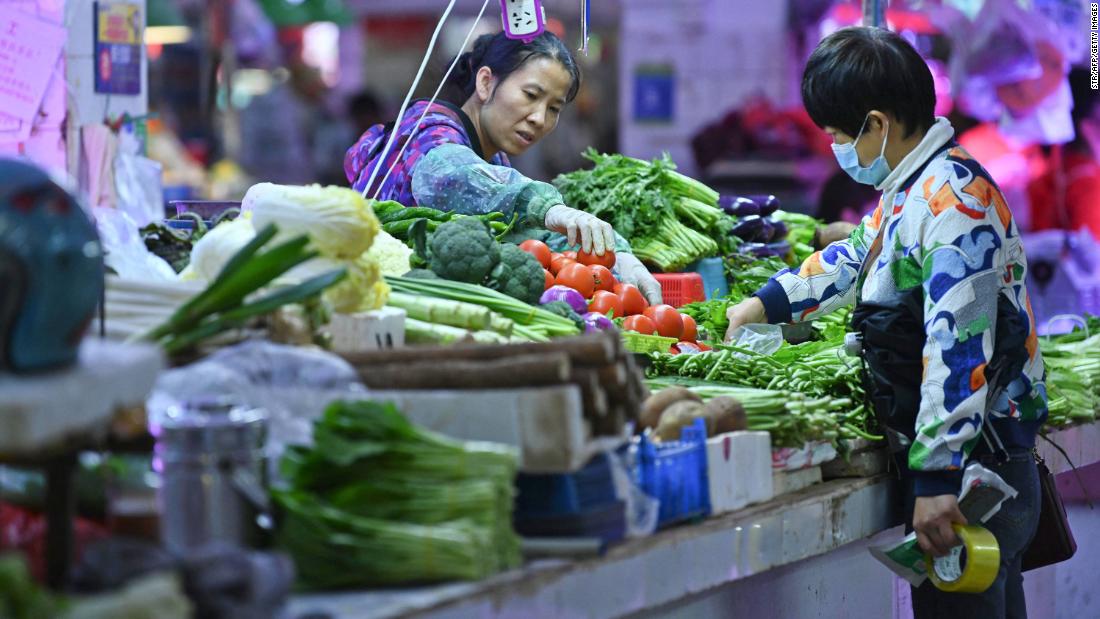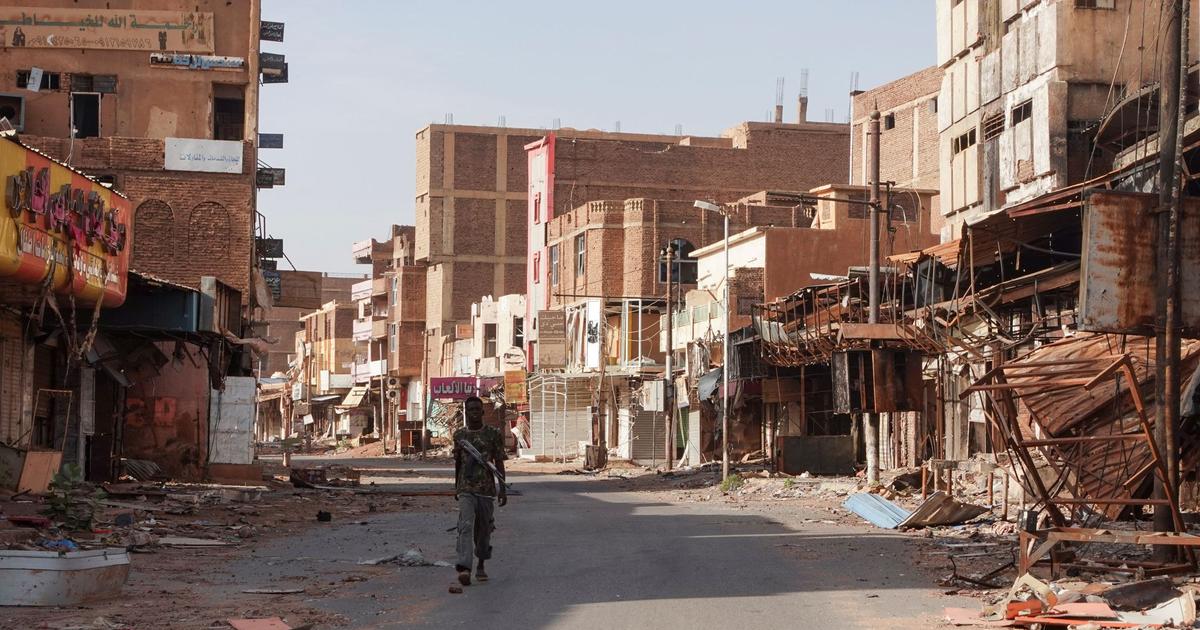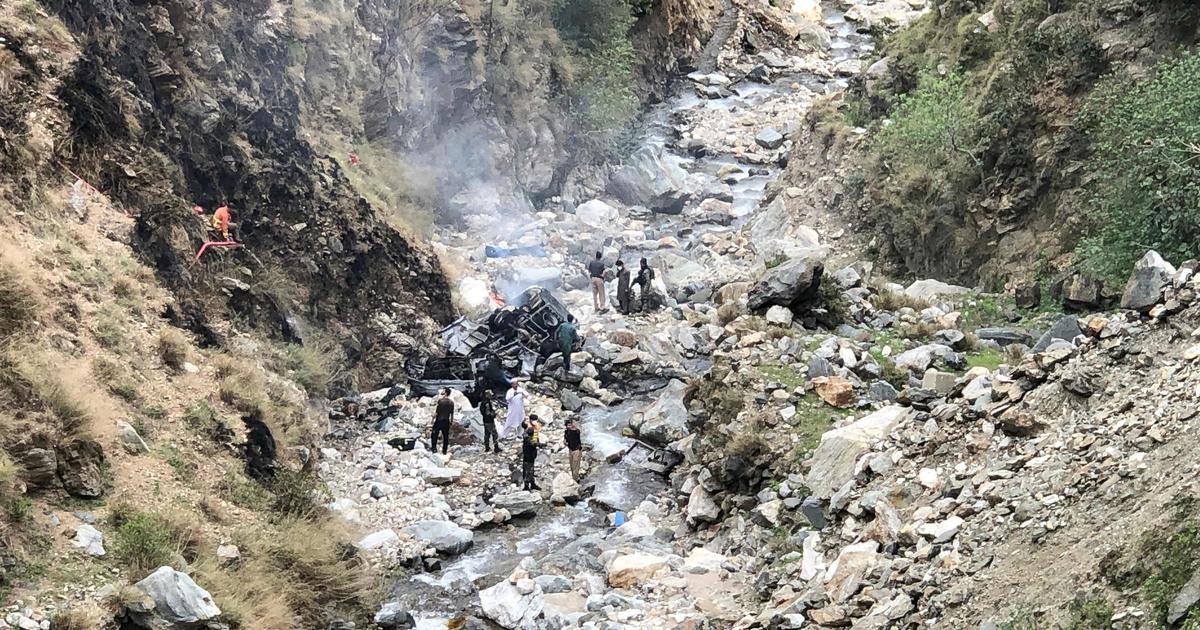Chinese factories are experiencing their worst moment in the pandemic 0:58
Hong Kong / Seoul (CNN Business) -
China is telling families to stock up on food and other daily essentials as bad weather, power shortages and COVID-19 restrictions threaten to disrupt supplies. .
The country's Commerce Ministry issued a notice on Monday night directing local governments to encourage people to stockpile "basic necessities," including vegetables, oils and poultry, to "meet the needs of the daily life and emergencies ".
"We're Fighting Day by Day": Supply Chain Crisis Threatens to Leave Americans Most in Need Without Enough Food
The agency also urged local authorities to ensure that people have an "adequate supply" of essentials for this winter and next spring. And he told those authorities to keep prices stable, something that has sparked anxiety in recent weeks as the cost of vegetables has skyrocketed across China due to unusually heavy rains that have damaged crops.
China has stressed the importance of beefing up the availability of food and other daily supplies in the past, including in September, ahead of a major week-long holiday period.
But such statements are often very obviously intended for local authorities to read, and they rarely capture the attention of ordinary citizens.
However, the inclusion of language that mentions families in this statement appears to be pushing the population to the limit.
This Tuesday, the sudden warning generated noise in Chinese social networks, where many people speculated on the justification of the Ministry of Commerce.
The government "did not even tell us to store goods when the covid outbreak broke out in early 2020," wrote a Weibo user in response to the news.
advertising
Another speculated that authorities were reminding people that "they may not be able to buy vegetables this winter."
This Christmas will be incredibly expensive, experts warn 0:46
So strong was the backlash that some within Chinese state media tried to quell the concerns.
Hu Xijin, editor of the Global Times, a state-run tabloid, dismissed suggestions that the notice could be related to rising tensions between Beijing and Taipei.
China considers Taiwan an "inseparable part" of its territory, despite the fact that the Chinese Communist Party has never ruled the autonomous island.
Meanwhile, the state-owned Economic Daily wrote on Tuesday that authorities were trying to remind families to prepare in case of temporary lockdowns caused by COVID-19.
And state broadcaster CCTV said the part of the ad asking families to stock up on essentials had been overdone.
He also published an interview with Zhu Xiaoliang, an official from the Ministry of Commerce, who said that daily supplies for people are sufficient and can be "fully guaranteed."
Zhu added that the announcement was intended for local authorities.
Supply chain nightmare does what regulators and rivals couldn't: stop Amazon
China's strict policy on covid-19 outbreaks
China has maintained a strict zero covid-19 policy, even as countries around the world gradually open up and learn to live with the coronavirus. The world's second-largest economy is determined to completely eradicate the virus within its borders and has implemented strict restrictions to halt the outbreaks, including stopping high-speed trains and quarantining passengers, and changing traffic lights. to red to discourage traffic in a county where only one case was reported.
China's strict measures even went viral over the weekend after a single confirmed case of coronavirus sent Shanghai Disneyland into instant lockdown.
In one video, crowds could be seen lining up in front of makeshift test sites as healthcare workers wearing full personal protective equipment (PPE) watched.
Heat prices skyrocket and Biden can't do a thing about it
National efforts to curb coronavirus cases may be contributing in part to the rising cost of food, according to Wang Hongcun, an official with the Beijing Municipal Commerce Bureau.
Hongcun told a press conference last week that the cost of transit between regions could increase due to strict containment measures.
Wang added that the prices of some vegetables in the country's capital had soared 50% or more in October.
How extreme weather events and the energy crisis affect
But there are other factors contributing to the increase.
A widespread shortage of coal has made greenhouse farming more expensive by increasing the cost of heating and energy.
And extreme weather has damaged crops in major agricultural provinces.
The Commerce Ministry on Monday urged local authorities to prepare for winter by signing long-term contracts with suppliers of agricultural products, as well as buying vegetables that can be stored.
López Obrador criticizes US document on energy 5:11
Beijing has taken other recent measures that appear to be aimed at food security.
On Monday, the government released an "action plan" encouraging people not to order more food than they need and to report restaurants that waste food, a move similar to a campaign led by President Xi Jinping on Monday. last year, when the coronavirus pandemic and extreme flooding threatened food supply chains.
And in April, China passed a law allowing restaurants to charge diners an additional fee for leaving "excessive" leftovers on their plates.
The law also penalizes people who make or share binge videos, with fines of up to 100,000 yuan (approximately US $ 15,000).
supply chain



/cloudfront-eu-central-1.images.arcpublishing.com/prisa/J4K272U7F4MSEOWKHTS3KJZDZY.jpg)











